India’s Prime Minister Narendra Modi has hailed his country’s “special relationship” with the UK as he addressed a Wembley Stadium rally.
Speaking at an event marking the Indian diaspora’s contribution to the UK, he said it was “a historic day for a great partnership between two great nations”.
He had been greeted by huge cheers from the 60,000-strong crowd as he arrived on stage with UK PM David Cameron.
Earlier, Mr Modi had lunch with the Queen at Buckingham Palace.
At the start of his speech in London, Mr Modi said: “I would like to ensure you that the dreams you have dreamt – and the dreams every Indian has dreamt – India is capable of fulfilling these dreams. There is no reason for India to remain a poor country.”
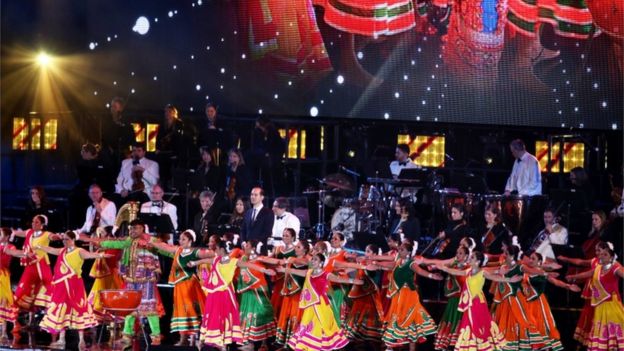 Image copyrightGetty Images
Image copyrightGetty ImagesHis three-day visit is the first to the UK by an Indian PM in a decade.
How close are UK and India relations?
What India and the UK love about each other
As Mr Cameron introduced his Indian counterpart to the stage, he said the UK-India relationship was “about our potential”, and said both countries were “united by the scale of our ambition”.
“Team India, team UK – together we are a winning combination,” he added.
The crowds applauded when he said it would not be long before there was a British Indian prime minister in Downing Street.
Mr Modi gave his speech mainly in Hindi, aside from a short welcoming opening in English.

Analysis
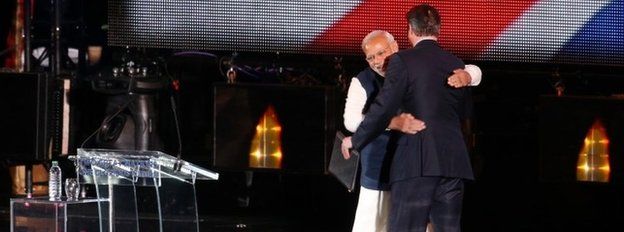 Image copyrightGetty Images
Image copyrightGetty ImagesBy Justin Rowlatt, the BBC’s South Asia correspondent
Mr Modi produced the usual warm words about how his government would lift ordinary Indians out of poverty.
But another key theme was the diversity of India – seemingly an attempt to address criticisms that he is presiding over a growing climate of intolerance in India.
At Wembley he talked about how India’s many languages, cultures – even cuisines – were a source of power and strength to India.
He also had some unexpected things to say about India and Britain’s shared history.
In the past Mr Modi has talked about slavery and oppression during colonial rule.
Today he said “the soil of London” had given birth to India’s “freedom struggle” – an attempt, perhaps, to lay the legacy of Britain’s imperial past to rest.
Read more: Cameron plays safe as Modi tackles tricky issues

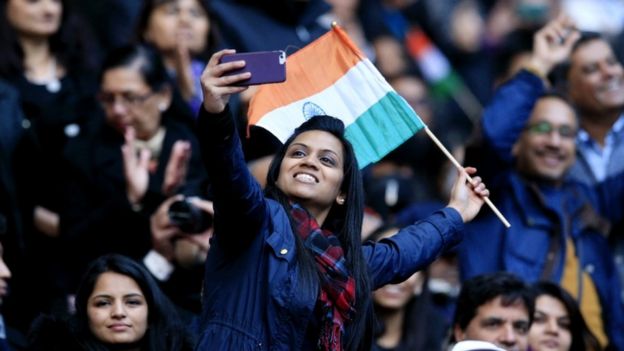 Image copyrightPA
Image copyrightPAThe Indian prime minister’s visit to the UK is seen as highly significant, coming three weeks after Chinese leader Xi Jinping also visited.
Mr Modi has previously described India’s relationship with the UK as being of “immense importance”, but his appearances have also attracted protest over allegations of religious persecution and a reduction in civil liberties since he came to power.
A small group of protesters gathered outside Wembley ahead of the speeches BBC News confirmed.
After his lunch with the Queen, Mr Modi was shown a collection of items from the palace’s stores including a shawl given to the Queen by Mahatma Gandhi in 1947 as a wedding present.
In an exchange of gifts, Mr Modi gave the Queen photographs of her visit to India in 1961 and a gift box including Darjeeling tea from West Bengal and silk Tanchoi scarves from his parliamentary constituency of Varanasi.
In return, Mr Modi was presented with a silver dish and signed photos.
Earlier, the Duke and Duchess of Cambridge announced they would go on tour of India next spring.
Why the UK visit is designed to dazzle Modi
India sends a message on talented migrants
Why British Sikhs are calling for a ‘black Diwali’

Modimania: India’s superstar PM
- Narendra Modi is seen as a divisive politician – loved and loathed in equal measure
- He is leader of the Bharatiya Janata Party (BJP) and took over as PM in May 2014 after leading his party to a spectacular general election win
- He served as the chief minister of Gujarat from 2001 and is regarded as a dynamic politician who helped make the western state an economic powerhouse
- But he is also accused of doing little to stop the 2002 religious riots when more than 1,000 people, mostly Muslims, were killed – allegations he has consistently denied
- His 18 months in power have been somewhat controversial amid concerns overrising social tensions and intolerance in India
- Mr Modi is known as a brilliant public speaker and is very popular among Indian communities abroad – up to 60,000 people are expected to attend Wembley Stadium to hear him speak
Read more about Mr Modi and why he’s so popular abroad

Before being received at Buckingham Palace, Mr Modi took part in a round table of British and Indian business leaders in Downing Street.
The two countries have sealed £9bn worth of commercial deals in the retail, logistics, energy, finance, IT, education and health sectors, which No 10 said had created or safeguarded 1,900 jobs.
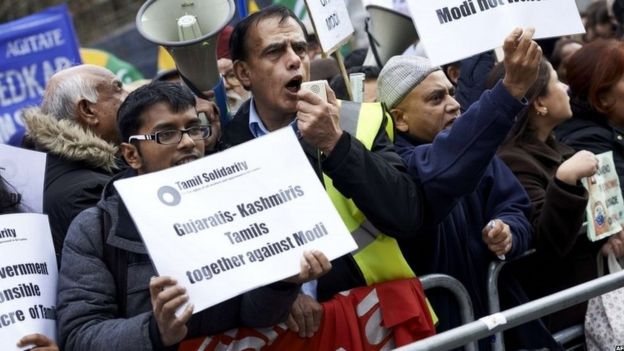 Image copyrightAFP
Image copyrightAFPOn Thursday, in the first speech by a serving Indian PM to Parliament, Mr Modi said the UK and India were “two strong economies and two innovative societies” but he said their relationship “must set higher ambitions”.
The first day of Mr Modi’s visit also attracted protests outside Downing Street directed against a number of issues including claims of religious persecution, and interference in Nepal
Amnesty International has urged Mr Cameron to intervene over a “fevered crackdown on critics under way in India”.



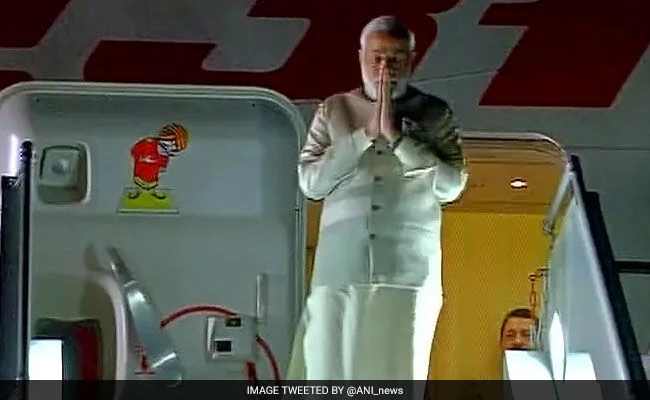
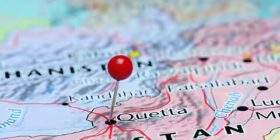
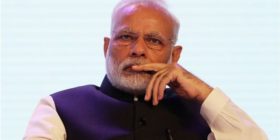
Leave a reply